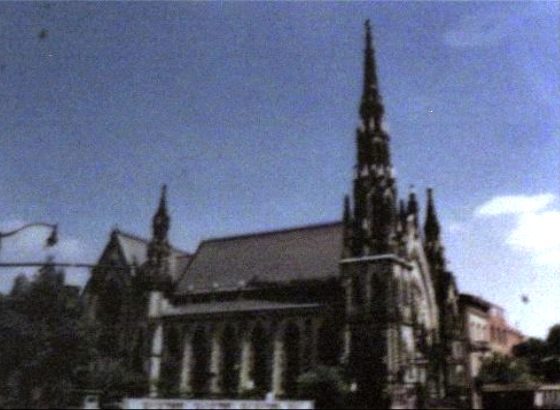Part 6: Rocks of Soldiers Delight
Main_Content
Part 6: Rocks of Soldiers Delight
Nature's Forces
This display shows us sections of the earth’s surface retaining water from the ocean, and representing how the Soldier’s Delight area was formed.
Over 400 million years ago, rocks experienced a magnitude of geological reactions. One of these reactions combined oceanic crust with sedimentary rocks, or rocks found near the Earth’s surface, and formed the serpentine rock found here at Soldiers Delight.
It gets its name because it is primarily made up of the mineral called serpentine and is the reason the area around Soldiers Delight is so different from the surrounding areas.
A Geologist's Treasure
This display has both photos of rocks found at Soldiers Delight as well as tangible rock samples on display. It also shows us a photo of a church in Baltimore that was built using serpentine rock from Soldiers Delight.
 This church in Mt. Vernon Place, Baltimore used Serpentine rock in its construction.
This church in Mt. Vernon Place, Baltimore used Serpentine rock in its construction.
Several nearby buildings were constructed using rock found at Soldiers Delight and can be distinguished by their dark color. The rocks below the surface of Soldiers Delight are less exposed to the elements and display a greenish-black color typical of serpentine.
Some of the common rocks found throughout Soldiers Delight are Serpentine and Chromite.
Go to Part Seven